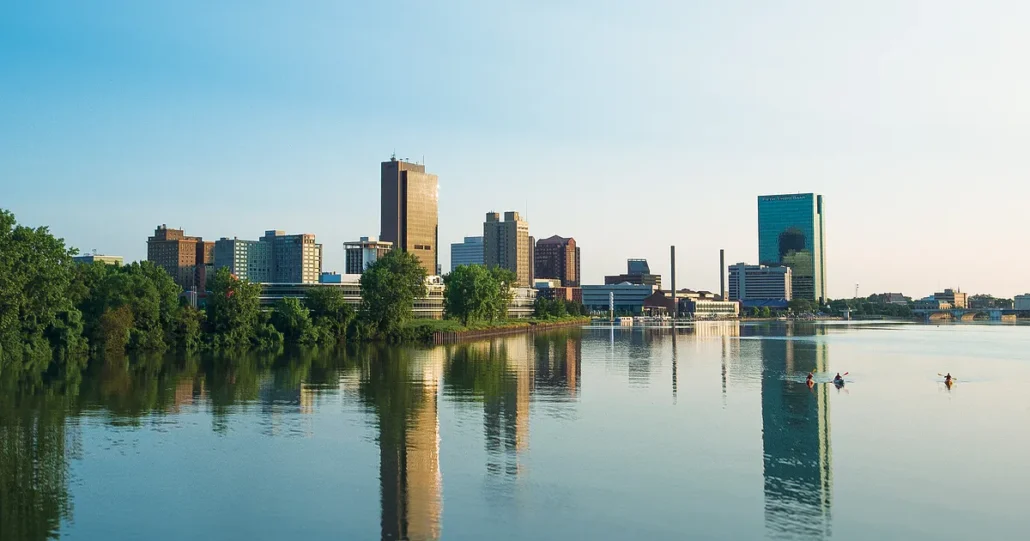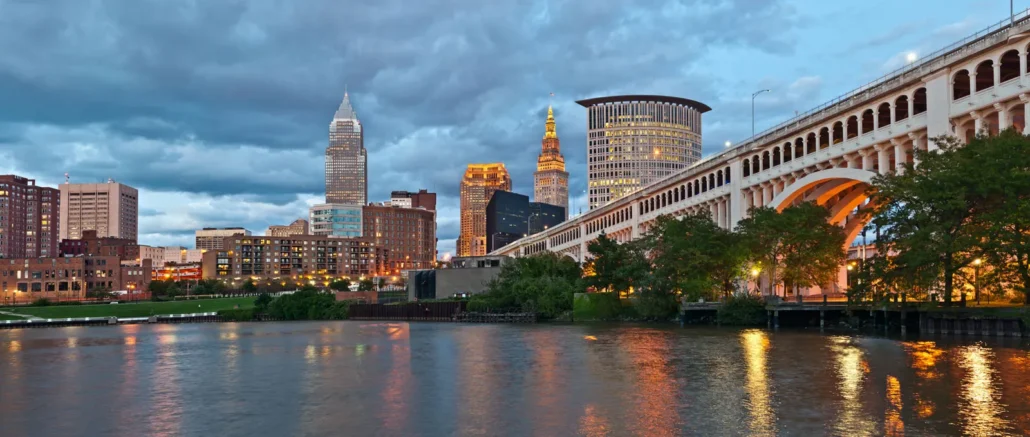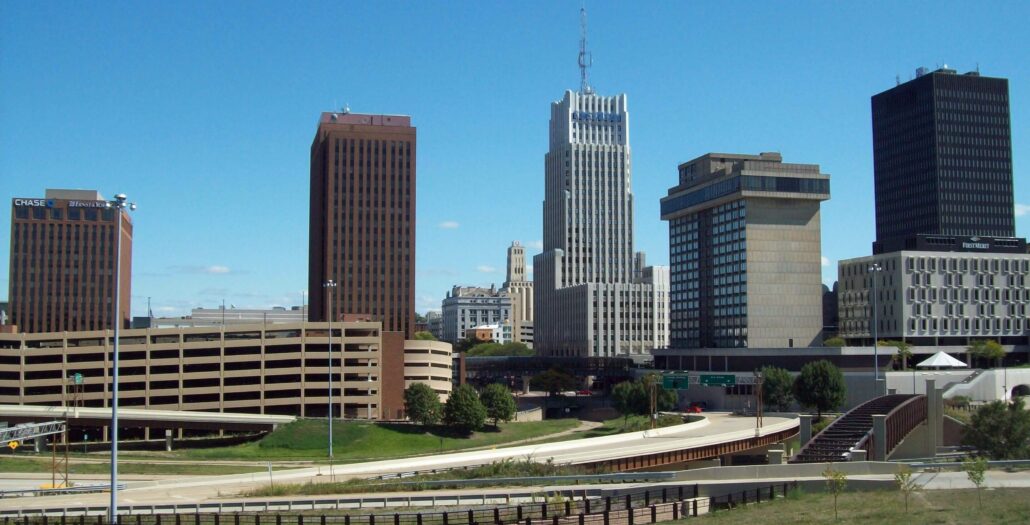Rebuilding Lives: Halfway Houses in Ohio

Ohio, deeply entrenched in the opioid crisis, faces staggering statistics of addiction-related challenges. With over 4,000 overdose deaths reported annually and an estimated 500,000 individuals struggling with substance abuse disorders, the state grapples with the devastating impact of addiction on communities across urban and rural landscapes alike. Amidst this crisis, halfway houses in Ohio stand as vital resources, providing sanctuary to those in need. From the bustling streets of Cleveland to the serene neighborhoods of Cincinnati, these facilities offer a lifeline to individuals seeking to break free from the cycle of addiction.
In cities like Cleveland, where approximately 10% of the population battles addiction, the demand for rehabilitation services is urgent. Similarly, in Cincinnati, where opioid-related hospitalizations have risen by 30% in the past decade, the need for supportive environments for recovery is glaringly evident. Halfway houses play a pivotal role in addressing these challenges, offering structured programs and supportive communities where individuals can rebuild their lives. As Ohio continues to grapple with the opioid epidemic, these halfway houses serve as beacons of hope, guiding individuals on the path to healing and transformation.
Nurturing Recovery in Cleveland: Halfway Houses in Cleveland
Cleveland, Ohio’s second-largest city and a cultural epicenter, is known for its vibrant arts scene, rich history, and industrial heritage. However, beneath its bustling facade lies a community grappling with the challenges of addiction. The prevalence of alcohol consumption in Cleveland contributes to a significant need for recovery services.
Statistics reveal that Cleveland experiences a higher-than-average rate of alcohol-related incidents compared to other cities in Ohio. This underscores the importance of halfway houses in Cleveland in providing a supportive environment for individuals in recovery. These facilities offer residents the opportunity to rebuild their lives, develop essential life skills, and establish a sober support network within the vibrant fabric of Cleveland.
Embracing Healing in Cincinnati: Halfway Houses in Cincinnati
Cincinnati, located along the scenic Ohio River, is a city with a rich cultural heritage, thriving arts scene, and vibrant neighborhoods. Despite its many attractions, Cincinnati faces challenges related to substance abuse, including alcohol addiction. The city’s bustling downtown area and lively nightlife contribute to a culture where alcohol consumption is prevalent.
Statistics indicate that Cincinnati experiences a moderate number of alcohol-related incidents, highlighting the need for recovery resources in the community. Halfway houses in Cincinnati provide a supportive environment where individuals can focus on their recovery journey away from the distractions of city life. Residents have access to counseling, group therapy, and recreational activities, fostering healing and growth in the serene surroundings of Cincinnati.
Rebuilding Lives in Columbus: Halfway Houses in Columbus
Columbus, the capital city of Ohio and a vibrant urban center, is known for its diverse population, thriving economy, and world-class universities. Despite its many strengths, Columbus faces challenges related to substance abuse, including alcohol addiction. The city’s vibrant arts scene, bustling downtown area, and collegiate atmosphere contribute to a culture where alcohol consumption is prevalent.
Statistics reveal that Columbus experiences a moderate number of alcohol-related incidents, underscoring the need for recovery resources in the community. Halfway houses in Columbus offer a supportive environment where individuals can focus on their recovery journey. Through counseling, life skills training, and peer support, residents can rebuild their lives and work towards a brighter, sober future in the heart of Columbus.
Cultivating Renewal in Dayton: Halfway Houses in Dayton
Dayton, nestled in the scenic Miami Valley of southwestern Ohio, offers a peaceful setting for individuals seeking recovery. This close-knit community is known for its strong sense of community, rich history, and vibrant arts scene. However, like many towns across the state, Dayton faces challenges related to substance abuse, including alcohol addiction.
Statistics reveal that Dayton experiences a moderate number of alcohol-related incidents, highlighting the need for recovery services in the community. Halfway houses in Dayton provide a supportive environment where individuals can focus on their recovery journey away from the distractions of city life. Residents have access to counseling, group therapy, and recreational activities, fostering healing and growth in the serene surroundings of Dayton.
Finding Strength in Toledo: Halfway Houses in Toledo
Toledo, located along the western shores of Lake Erie, is a city known for its industrial heritage, cultural diversity, and waterfront attractions. Despite its many strengths, Toledo faces challenges related to substance abuse, including alcohol addiction. The city’s proximity to major highways and its bustling port contribute to a culture where alcohol consumption is prevalent.
Statistics reveal that Toledo experiences a moderate number of alcohol-related incidents, underscoring the need for recovery resources in the community. Halfway houses in Toledo provide a supportive environment where individuals can focus on their recovery journey. With access to counseling, life skills training, and peer support, residents can rebuild their lives and embrace a brighter, sober future in the heart of Toledo.
Renewal and Recovery: Embracing Sobriety in Ohio
In conclusion, halfway houses in Ohio stand as beacons of resilience and hope amidst the daunting challenges of the opioid crisis. With over 60,000 individuals seeking treatment for substance abuse annually and an alarming 25% increase in opioid-related deaths in recent years, these facilities play a crucial role in providing a pathway to recovery. From the vibrant streets of Columbus to the tranquil neighborhoods of Dayton, halfway houses offer a haven where individuals can find solace, support, and the tools necessary to rebuild their lives. As we confront the harsh realities of addiction, let us remain steadfast in our commitment to fostering compassion and empowerment within our communities, knowing that within the heart of Ohio, the promise of renewal awaits those who dare to seek it.
Primary Service: Mental Health Services
Address : 2026 OH-45, Austinburg, 44010
Primary Service: Mental Health Services
Address : 480 Medical Center Dr, Columbus, 43210
Primary Service: ⦁ Mental Health Services
Address : 7593 Tylers Pl Blvd, West Chester Township, 45069
Primary Service: ⦁ Substance Abuse Treatment Services
Address : 7400 Huntington Park Dr,, Columbus, 43235
Primary Service: ⦁ Substance Abuse Treatment Services
Address : 6555 Busch Blvd Suite 100, Columbus, 43229
Primary Service: ⦁ Substance Abuse Treatment Services
Address : 6555 Busch Blvd Suite 100, Columbus, 43229
Primary Service: ⦁ Substance Abuse Treatment Services
Address : 7540 New West Rd, Toledo, 43617
Primary Service: ⦁ Drug and Alcohol Dependency
Address : 3880 Jackpot Rd, Grove City, 43123
The LCADA Way
(0)Primary Service: ⦁ Drug and Alcohol Dependency
Address : 120 East Ave #5652, Elyria, 44035
Primary Service: ⦁ Drug and Alcohol Dependency
Address : 9600 Old State Rd, , 44024




